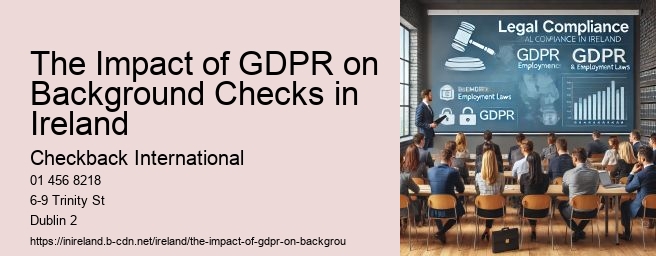

Employers must maintain transparency throughout the screening process and limit their inquiries to job-relevant information to avoid discrimination and maintain fairness. How to Prepare for a Pre Employment Check Getting ready for a pre-employment check needs careful attention to detail and organization.
Service reliability: Choose providers demonstrating consistent accuracy in verification processes and information cross-checking.
2.Employment History Check: This validates a person's previous work experience, roles, and job performance.
Legal Considerations for Background Checks in Ireland
Sector-Specific Background Check Requirements in Ireland: Healthcare, Education, Finance
Organizations must weigh these expenses against the benefits of risk reduction that thorough background checks provide.
2.Data Examination: Complete checks against multiple internal and external databases.
Understanding PSA Vetting Standards
Health and Welfare Sector Background ChecksPSA vetting maintains high standards within the security sector, yet mistakes can compromise the process. Follow these practices for thorough and accurate vetting:
Practical Aspects of Vetting Process: Timeliness and Costs
The system meets all Irish and European Data Protection legislation requirements while connecting with credit agencies and European inspectorates.

Service providers charge different rates, and faster processing times cost more. Organizations can expect varied expenses based on their requirements for each candidate.
1.Security Firms: Strong vetting builds trust in security personnel, which matters for client confidence and contractual obligations.
Such refusal may indicate non-compliance with company policies and regulatory requirements.


These checks cover registered and unregistered judgments, using data from Courts and Companies Office records through credit agency systems.
Support teams work during business hours Monday through Friday to help with processing and answer questions during the vetting procedure.
New technology changes how PSA vetting works.
The standards influence current and future practices in background checking processes.
In Ireland, data provided during background checks has strong security protections. Vetting agencies use security measures and encryption to keep personal information safe throughout the screening process.
Does Previous Failed Vetting Affect Future PSA Background Checks?

Overview of Checkback International's Screening Services
PSA vetting takes 21 days, though this can reduce to 10 days when applicants submit all required information promptly.
The costs of international background checks differ based on multiple factors such as the countries searched, the length of history reviewed, and the specific checks performed like criminal records, credit history, or educational verification.
Vendor Screening
A background check in Ireland involves reviewing a person's criminal, financial, or personal records to assess their suitability for a role or position.
The duration can vary but typically takes between 1-2 weeks, depending on the type and complexity of the check.
Garda vetting is a specific type of background check required in Ireland for individuals working with children or vulnerable adults, involving checks against police records.
Yes, you must obtain consent from the individual before conducting any background checks in Ireland.
Not for all employees, but certain sectors such as healthcare and education may require comprehensive checks.
It includes checking for any criminal convictions or offences recorded against the individual.
Yes, individuals can request their own background checks in Ireland for personal review or to prepare for employment screenings.
Skipping background checks can lead to hiring unsuitable candidates, which may result in legal and reputational risks.
Yes, police clearance is a general criminal record check, while Garda vetting is specific to roles involving vulnerable groups and includes more detailed investigations.
You can request transcripts or degrees directly from educational institutions or use third-party services that specialize in educational verifications.
Information about spent convictions, certain types of personal data, and other protected characteristics under GDPR is off-limits unless specifically relevant and lawful to access.
International checks may involve additional complexities such as different laws, languages, and longer processing times.
No, background checks do not affect your credit score as they do not involve a credit inquiry that would impact the score.
Best practices include securing data in compliance with GDPR, limiting access to authorized personnel, and ensuring data is stored for only as long as necessary.
It depends on the industry and role, but typically every 2-3 years or when significant changes occur in the individual’s role or responsibility.
While not specific by law, many IT positions require checks due to access to sensitive or proprietary information.
GDPR regulates the processing of personal data, ensuring that background checks are conducted in a lawful, fair, and transparent manner.
Yes, but it must be done lawfully and with the individual’s consent, considering the relevance to the role.
Penalties can include fines, legal actions, and reputational damage, depending on the severity of the non-compliance.
Remote work has increased the importance of thorough background checks, especially for those in positions of trust or handling sensitive data.
Best practices include conducting similar checks as for permanent staff, especially if they have access to sensitive or critical areas.
Ensuring fairness involves following consistent procedures, obtaining consent, and allowing candidates to dispute inaccuracies.
Yes, it’s recommended to tailor background checks based on the specific risks and requirements of each position.
Signs include transparency about services, compliance with legal standards, positive reviews, and strong data protection practices.
Handling involves assessing the relevance to the job, discussing findings with the candidate, and considering legal and ethical implications.